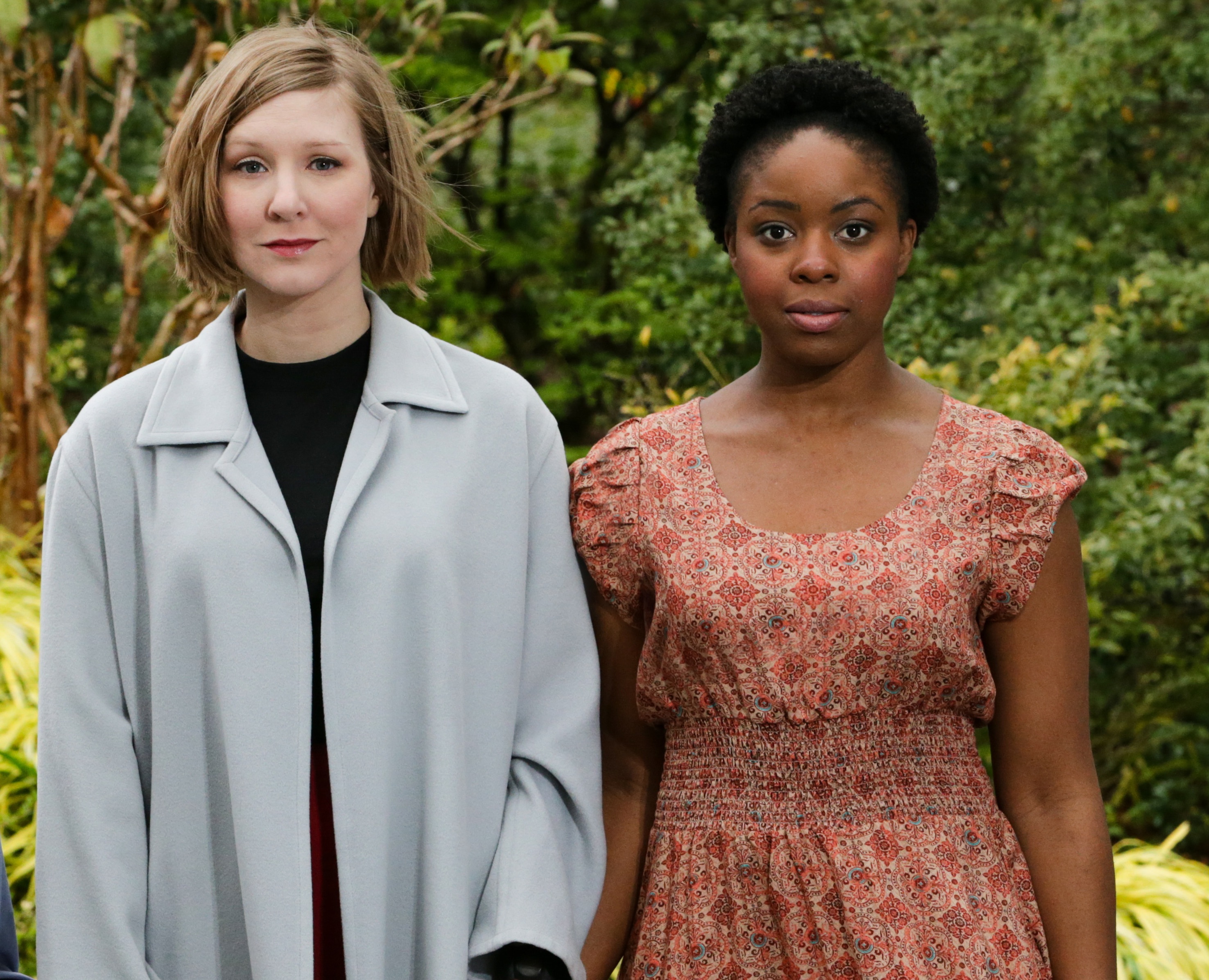In Book-It’s version of Chris Cleave’s 2008 novel (adapted and directed by Myra Platt), who in the world gets to live in peaceful prosperity is the thorniest of many conundrums, nestled like an artichoke heart among interlocking barbed petals. In the play’s primal scene (which comes late in the first act), Brits Sarah and Andrew cavort on a Nigerian beach where they meet locals Little Bee and her sister just before the adolescent girls are kidnapped by insurgents. True character is revealed during these harrowing moments; afterward, these scarred individuals must come to terms with what they have seen in themselves and in others. It’s an undeniably potent formula for drama, and this moving interpretation takes good advantage of the setup. Atmospheric sound by Evan Mosher, lights by Andrew D. Smith, and Will Abrahamse’s flexibly austere sets help lubricate the shifts between Africa and England, where Little Bee is unexpectedly reunited with the Brits a few years later.
For the sake of suspense, I’m dancing around what happens on the beach, and some other reveals, despite the book’s wide readership. (A Nicole Kidman film adaptation is rumored.) Suffice it to say that the bond between Sarah (a wistful, compelling Sydney Andrews) and Bee quickly eclipses most others, including Sarah’s marriage to Andrew (Eric Riedmann) and her extramarital courtship with British Home Office-er Lawrence (Michael Patten). Still, the show depends—and succeeds—on the basis of its star: Claudine Mboligikpelani Nako. With shy smile and unflinching gaze, her Little Bee radiates intelligence even while puzzling over such cross-cultural mysteries as how a coffee table can be made of coffee. She elicits reckonings from all who confront her. And her melding of gallows humor and hope, expressed in painstaking Queen’s English, melts hearts onstage and in the audience.
Per Book-It recipe, there’s a lot of direct address as characters share inner thoughts and desires (plus dutiful exposition). A few glaring improbabilities mar the second act—particularly the contradictions between Lawrence’s words and actions. One could also squint at the wish-fulfillment ending, but this would be to let cynicism mutate the dream gene. Little Bee posits a reverie that deserves to be indulged: a First-Worlder reaching outside her comfort zone to support a refugee’s birthright to a decent life.
stage@seattleweekly.com
LITTLE BEE Center Theatre at the Armory (Seattle Center), 216-0833. $25. Runs Wed.–Sun.; see book-it.org for schedule. Ends May 17.








